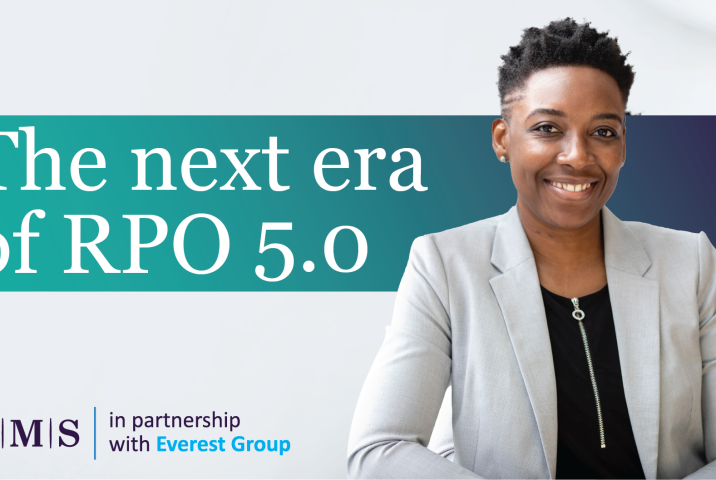Early Careers & Campus hiring: How to stand out from the crowd

The greatest part of Early Careers and Campus hiring is building relationships with candidates – kickstarting the success stories for fresh, new talent. But as the competition for graduates heats up, the most successful campus hiring teams are taking the candidate experience to a whole new level.
Early Careers and Campus recruitment is an entirely different industry than it was a few years ago. While attracting the best young minds remains key to building a future-fit talent pipeline, students are now demanding higher salaries, and are more discerning about the roles and organizations they want to take on. With employers looking to hire at least 30% more graduates this year, competition is fierce and talent have more options to choose from. This means that, when it comes to candidate experience, there is zero room for error.
Your competitive edge? Creating meaningful, personalized experiences with the wow factor. But how?
Know your audience
To build a truly personal connection with candidates, you should understand what makes them tick. At a broad level it’s clear that Gen Z talent are deeply tapped into key social issues, such as diversity, equity, and inclusion (DEI), and climate change. 69% of millennials and Gen Z-ers reported to be more likely to work for an employer for over five years if their workforce was diverse. 76% of job seekers said they consider a diverse workforce an important factor when evaluating offers. And 26% of Gen Z-ers cite the environment as a top concern.
If you can demonstrate a deep knowledge of your company culture and policy when it comes to DEI and the environment– right down to the granular detail – it shows students that your values are aligned with theirs. Research from Deloitte shows that this is what 77% of Gen Zers are after.
“Students want to know about a company’s global sustainability policy, what they do to reduce their carbon footprint,” says Terina Matthews-Davis, Client Director, Innovation and Early Careers & Campus at AMS. “I’ve had students ask whether the coffee cups used in a breakroom are biodegradable, or if it had a composting area … These are all things that companies need to be thinking through as they’re recruiting their young talent.”
77% of Gen Zers want to work for an organization whose values align with their own
Deloitte
But while understanding the overall generation you are trying to engage is helpful, Matthews-Davis emphasises that, to achieve meaningful connections with candidates, the research can’t stop there.
To set yourself apart, you have to dig deeper on the specific groups and student organizations that match your company culture and make the effort to learn about them.
“It’s about finding out what’s important to that student population on that campus,” says Matthews-Davis. “Partner with a variety of student clubs and organizations... Let them be the ones who are pulling you in, as opposed to you pushing yourself in.”
Form meaningful partnerships with students by making it clear why they are being invited to a particular event. Create an explicit connection between their community and your employer brand. “Students want to feel special,” says Matthews-Davis. “Tell them, ‘you were invited to our campus event because you’re part of one of the clubs or organizations that we value and are aligned with. That’s where the buy-in comes from.”
Make events something to remember
No one wants to be 1 of 200 people at a campus recruitment event anymore.
Today, it’s about crafting niche events and white glove experiences that your candidates will be desperate to attend. Armed with your in-depth knowledge of a student population, you can take advantage of this expertise and create events that will make you stand out from competitors.
When asked about ‘the best event they’ve ever attended’, graduates will always recall those that well and truly went the extra mile.
“It’s always the companies that took them somewhere they wouldn’t get to go on their own,” says Matthews-Davis. “During my time in New York, it was a company that hosted an event at the Met Gala. When I was at a major investment bank, 10 female students were invited to a private lunch on the office rooftop terrace with a female Managing Director.”
“Then, when I worked in Ohio, graduates were invited to dinner in a suite at the Ohio Stadium. In Ohio, the football stadium is like a shrine. As a student, you’re usually lucky to get in the stands, much less a suite. For a company to host 20-30 select candidates in such a historical space, that was incredibly special and memorable.”
Exceptional events can have the biggest impact on candidate experience. Take the time to plan something your graduate pool will never forget.
“Give candidates options not only to engage with your organization, but also the city they’re going to be living and working in.”
Give them face time with your senior leaders
In the classroom environment, students rarely have the opportunity to interact with real people who work in the organizations they are being recruited into. One of the best ways to capture the attention of young talent is by giving them the chance to meet and be inspired by full-time professionals.
Students want a full mix. They need to interact with people who are doing the job they are interviewing for, as well as employees who started in those roles and then moved up the ladder. Graduates also want the opportunity to engage with their future managers and see what good looks like. Allow them to imagine their own professional future, with real rolemodels in mind.
“It’s about inviting them to those private, intimate meetings with business leaders,” says Matthews-Davis. “The best salesperson is someone who came directly from that student’s community. Who went to their university, who was also an intern, and who worked their way up to become a VP or senior VP. That’s a true story.”
Students are eager to hear anything about the ins and outs of their future worklife from business leaders – the skills they use on a daily basis, the challenges they face, what their undergraduate studies taught them that they still use. “They’ll be hanging on every word.”
From a diversity, equity and inclusion (DEI) perspective, these meetings are also a perfect opportunity to ensure candidates from diverse backgrounds feel represented, and increase their sense of belonging in the workforce. “Use previous diverse interns [and full-time employees] to serve as ambassadors when engaging with new grads. Representation also matters” says Matthews-Davis.
“You can never give a student too many opportunities to engage with your organization.”
Mentor and coach them
Recruiters are in a unique position to guide and mentor young talent. Helping them make the transition from college to corporate life is an simple but effective way to enhance the candidate experience.
Offer them support on understanding the nuances of workplace behavior. Early careers candidates may not yet be up to speed with basic professional culture competencies, such as how to interact in a corporate environment, how to conduct themselves in a meeting, or how to write a professional email.
“Help them go from ‘backpack to briefcase,’” says Matthews-Davis. “Some graduates need to know the small things, like not saying ‘Hey’ to your boss in an email.”
Have a keep warm strategy
If all of the above has resulted in an offer being accepted, that is a success worth celebrating. But recruiting doesn’t stop after a candidate accepts a position. You need a ‘keep warm’ strategy of consistent, meaningful communication to make sure they stay engaged.
The key to standing out? Don’t be predictable. There is no such thing as overcommunication in early careers hiring, but you should make every touchpoint with candidates special. Use your knowledge of what’s important to them and personalize every interaction to make graduates feel part of the company culture and community.
Students respond to a mix of communication through a variety of channels, whether it’s a survey about what they want from their new role, a newspaper article about the business or, better yet, a personalized gift. Matthews-Davis says tailored brand merchandice is one of the best ways for companies to set themselves apart when engaging today’s top talent.
“The more personalized you can make the experience, the better,” she says. “I once had a candidate who loved to hike, so we sent them a list of the best places to hike in the U.S. In certain sectors, like financial services, it’s a badge of honor to have a backpack, vest or socks branded with a company logo … It’s the little things. They want to be able to show people on the subway or on the street, ‘I work for this big bank,’ or ‘I work for this organization.”
However, when it comes to gifts, staying on top of current trends is key. Brands that were in high demand in 2020 may not be now. Don’t be afraid to directly ask students what they want, so you get it just right.
Personalized gifts are also another opportunity to prove how your values align with those of graduates. “Gifting reusable and high-end waterbottles to reduce plastic use is a great example of how companies can highlight their sustainability policy to students,” says Matthews-Davis. “Those things go really far with this generation.”
“The more personalized you can make the experience, the better.”
Harness the value of internships
One of the most powerful tools for early careers hiring is still internships. Becoming part of an organization at the intern level directly engages graduates in a company’s culture and ways of working. Interns feel very valued, because they’re seeing how their work will impact the business.
“As an employer, you have a summer to ‘try before you buy’. You can bring in 100 students for 50 roles if you want, as long as you share upfront the conversion opportunity.” says Matthews-Davis. “Although bear in mind, the higher the conversion opportunity from intern to full-time job, the more valuable the employer will be to the student population.
For the interns that do convert into permanent positions, use your ‘keep warm’ strategy to maintain enagagement throughout their senior year when they’re back on campus. Support students to continue some of the work they were doing for the business during their internship. This keeps talent focussed on your company before their full-time role begins, so they’re less likely to seek out other opportunities in the meantime.
66% of interns convert into full-time employees
National Associate of Colleges and Employers
Avoid the common pitfalls
Of course, creating stand-out, specially tailored events and personalized ‘keep warm’ strategies won’t help you if you don’t get the basics right. Avoid these two pitfalls that graduate recruiters often fall into:
- Being slow to respond. More than ever, moving candidates through the process at speed is crucial. Your response time between interview stages must be timely (two weeks or under).
- Relying too heavily on tech. Candidates will expect you to have a social media presence on Twitter, Instagram and TikTok, and be responsive on these platforms. They will also expect that the bulk of their application process is completed online. But it’s easy to lean too heavily on tech. You must find a healthy balance between social platforms and traditional modes of interaction like personal emails and phone calls. Texting a contract may be a step too far.
In today’s competitive market, securing the best new talent is all about one thing: going the extra mile. A memorable, thoughtful and personalized candidate experience is your greatest strength.
If you need support with candidate experience for Early Careers and Campus talent, speak to one of our experts today.
More articles
Recruitment Process Outsourcing 5.0: The era of recruitment process orchestration and transformation
Explore how RPO 5.0 redefines talent acquisition with orchestration, technology, and strategic insights for building a future-ready workforce.
Best Practices for Managing a Contingent Workforce
Master the art of managing a contingent workforce with our expert best practices. Elevate your team's performance and ensure seamless operations today!
AMS partners with Fertility Matters at Work
AMS is proud to be the first talent solutions business to make the commitment to become a Fertility Friendly Employer.








